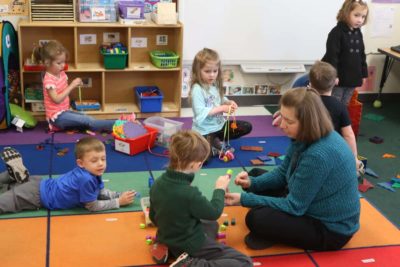North Carolina’s school report cards are based on false assumptions. The current formula, and the proposed new formula, assume that all students started out of the kindergarten gate with the same school readiness skills, that life experiences and opportunities have no bearing on education outcomes, and that ‘failing schools’ have ruined students. These false assumptions have created a report card assessment system that does nothing to help schools.
Rather, the system compares the privileged and the marginalized. The result is a foregone conclusion. For effective reform, what needs to be examined for each school is an opportunity index with subsequent actions based on what educators know affect educational outcomes.
What would be included in an opportunity index?
By now, it should be a widely accepted fact that “failing schools” are also schools where nearly all of the students come from high-poverty homes. Not just “new” poverty either — but generational poverty. Does poverty affect learning? The research resoundingly states that it does. Here are some of the major ways.
- Most children from generational poverty do not attend literacy rich preschools, which translates into entering kindergarten with literacy skills one to two years behind their preschool-graduating peers. These children must be overachievers, making up one to two years of academic growth over several years, if they are ever to catch-up. Do students in “high-performing schools” have to do that? Action: Universal, high-quality preschool.
- Most students from generational poverty do not have at-home access to the internet. Cell phones do not count. Teachers in these schools cannot “flip “ their classrooms (assign videos to watch as homework to discuss next day), nor assign any homework that requires internet use. The digital divide used to be thought of as generational. It is mostly economic. How can these children compete academically without what is now a basic need? Action: See this article on a Virginia district that built their own countywide broadband network.
- Most students from generational poverty do not have the opportunity to attend quality enrichment programs, either afterschool or during the summer, or take educational trips. A major benefit of such programs and experiences is that they prevent “summer slide” and provide background knowledge, which learning theory shows is a vital aspect of reading comprehension. Action: High-quality afterschool and summer enrichment programs that include educational trips; year-round schools.
- Living in poverty is stressful. Research documents that stress releases chemicals that have a negative impact on learning and behavior. Just think about a time you were stressed out and how it affected you. Most teachers are not trained to teach “with poverty in mind.” It truly takes a different teaching skill set and effective training programs are available. Action: Teacher and administrator training on teaching students from poverty with oversight to ensure it’s being implemented.
By now, it also should be a widely accepted fact that “failing schools” are also schools where the vast majority of students are of color. What are the effects of that?
- These students do not learn from curricula that are culturally responsive to them, i.e., most characters in stories or persons they learn about do not look like them. Motivation suffers. Action: Culturally responsive curricula and materials in the schools.
- Many students come from homes where English is not spoken. Hence, the only time they hear or speak English is at school. Action: Once again, see this article on broadband internet. Internet access would help those students with much-needed vocabulary development as well as homework.
Other variables that are common in “failing schools” and affect educational outcomes:
- Higher teacher turnover.
- Less teacher experience.
- Higher student mobility.
Action: See all of the above.
An opportunity index would quantify the following variables and demonstrate, in concrete ways, the significant gaps among schools in areas that strongly affect educational outcomes. The public also would have a realistic view of what truly is being compared.
- Percent of students not living at the poverty level
- Percent of kindergarten students who attended two years of preschool
- Percent of students who have internet plus either a laptop or desktop computer at home
- Percent of students who attend quality afterschool enrichment programs
- Percent of teachers who have received training and are implementing strategies that are culturally responsive to the school’s population
- Percent of students who attend quality summer enrichment programs
- Percent of curricular materials that are culturally responsive to the school’s population
- Percent of students whose families speak only English at home
- Percent of teachers with at least three years at the school and at the same grade level
- Percent of students who were enrolled the entire school year
Until these issues are addressed, school report cards set up high-poverty schools to fail and don’t reflect important variables that educators know truly affect educational outcomes. If these issues are addressed and fixed first, it will become a more level playing field when comparing schools.





